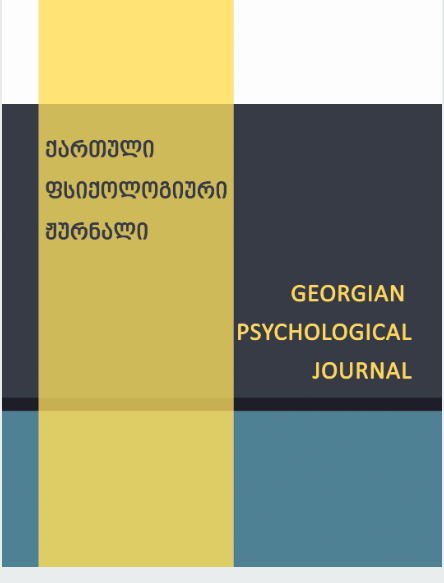PERSONALITY TRAITS AS CULTURAL MODELS (Georgian case – Aggression, Altruism, Flattery)
Main Article Content
Abstract
The article concerns the cultural models of personality traits viewed within the conceptual framework of cognitive psychological anthropology. It is believed that personality traits are shared cultural experiences formed in interaction with cultural practice and are represented in the psyche in the form of cultural models (schemas). 50 people (aged 25-45) participated in the study. For all participants Georgian was the first language. The study used psycho-semantic experiment and interviewing as research methods. 200 Georgian folk idioms were used as study material. The semantic space constructed on the basis of obtained results reflects the structure of semantic relations between the idioms. The interview provided material on the rational basis of semantic grouping used by research participants. It turned out that affective implications (feelings), perceptual implications (ideas about the similarity of the
elements united under the same category) and cognitive implications (naming of categories) proved to play the leading role in categorization. The data obtained from the interview and experiment were synthetically interpreted. The study analyses 3 personality traits: aggression, altruism and flattery. Personality traits and their components are interpreted within the culture-specific context.
